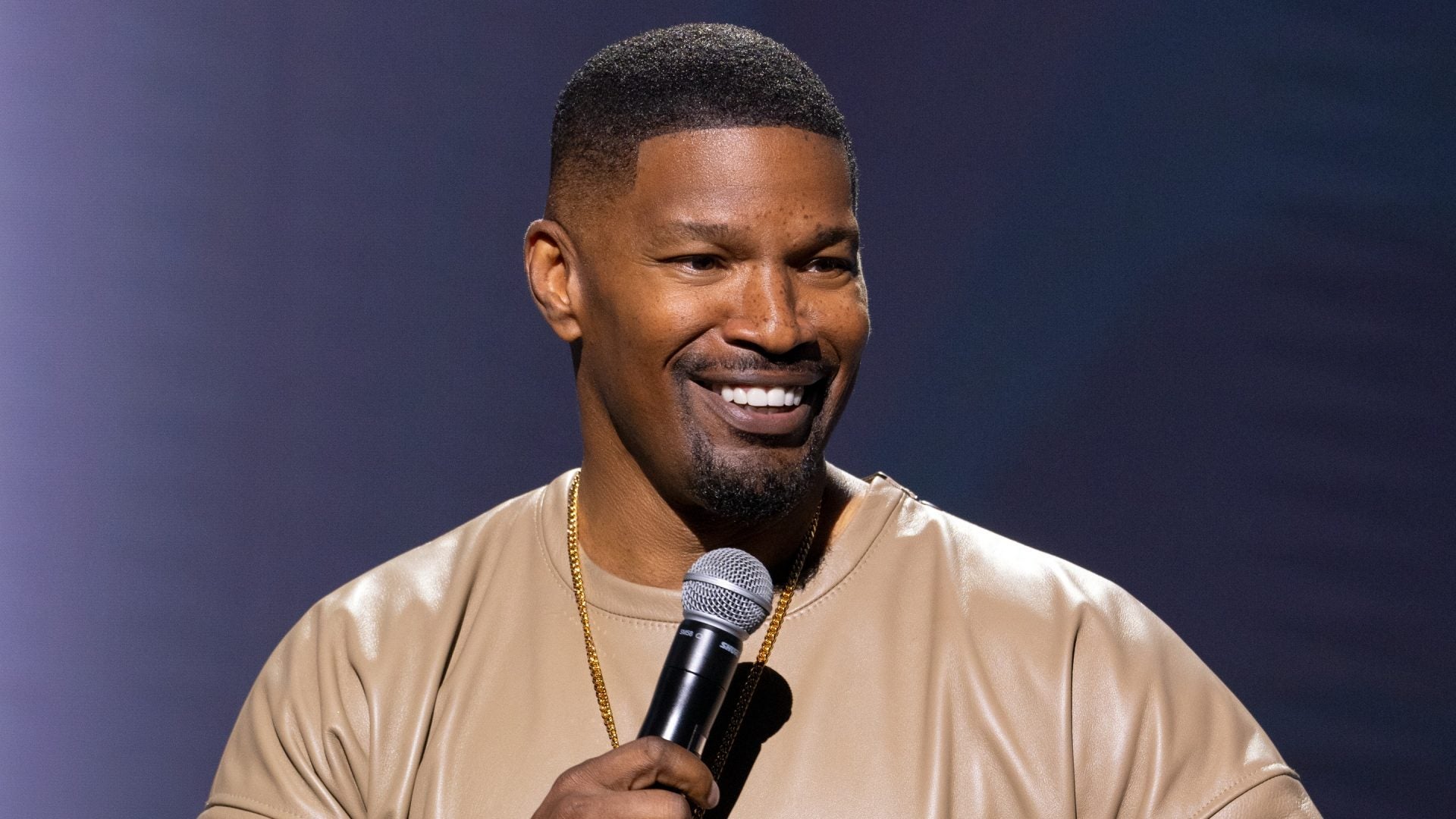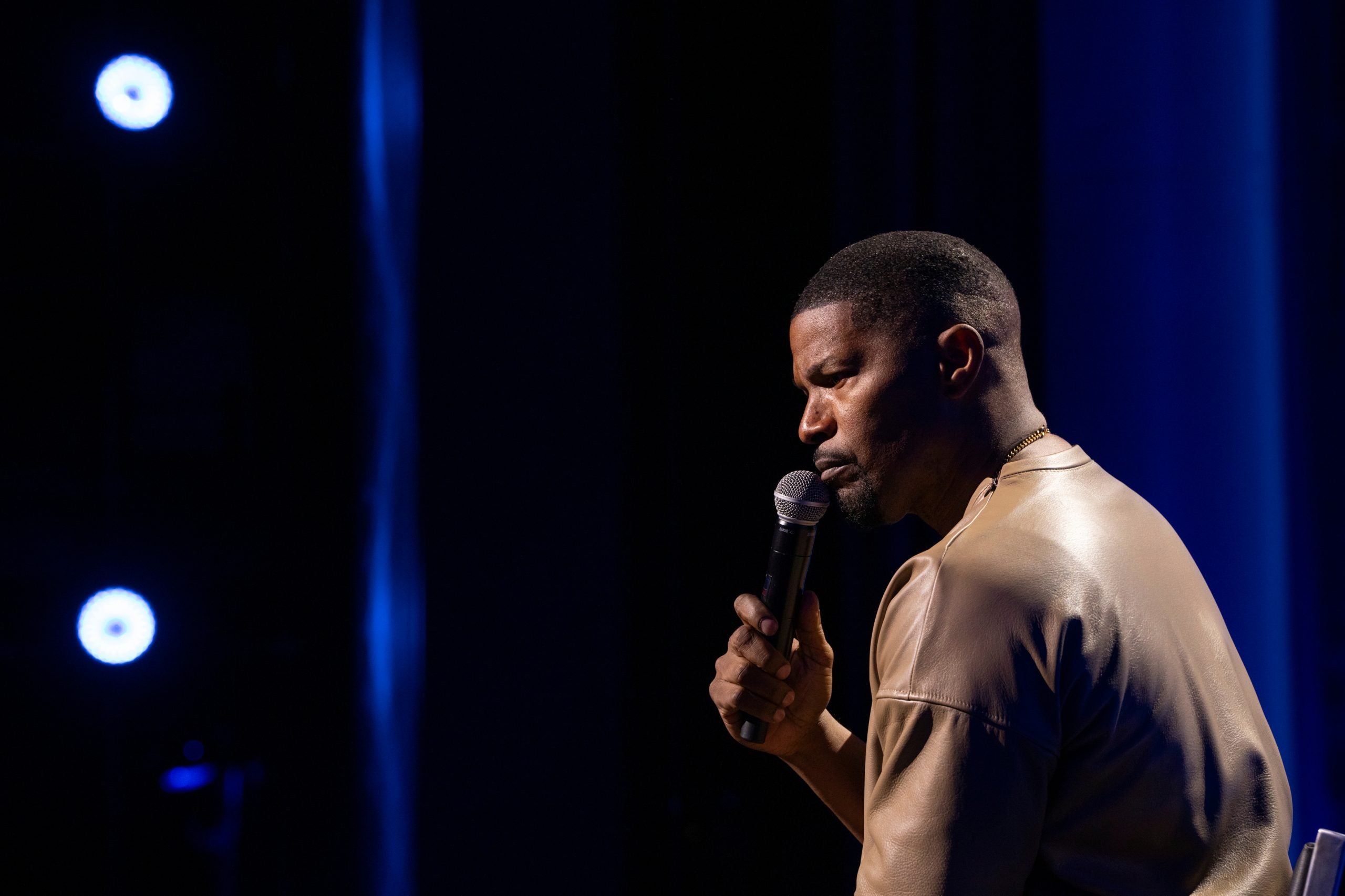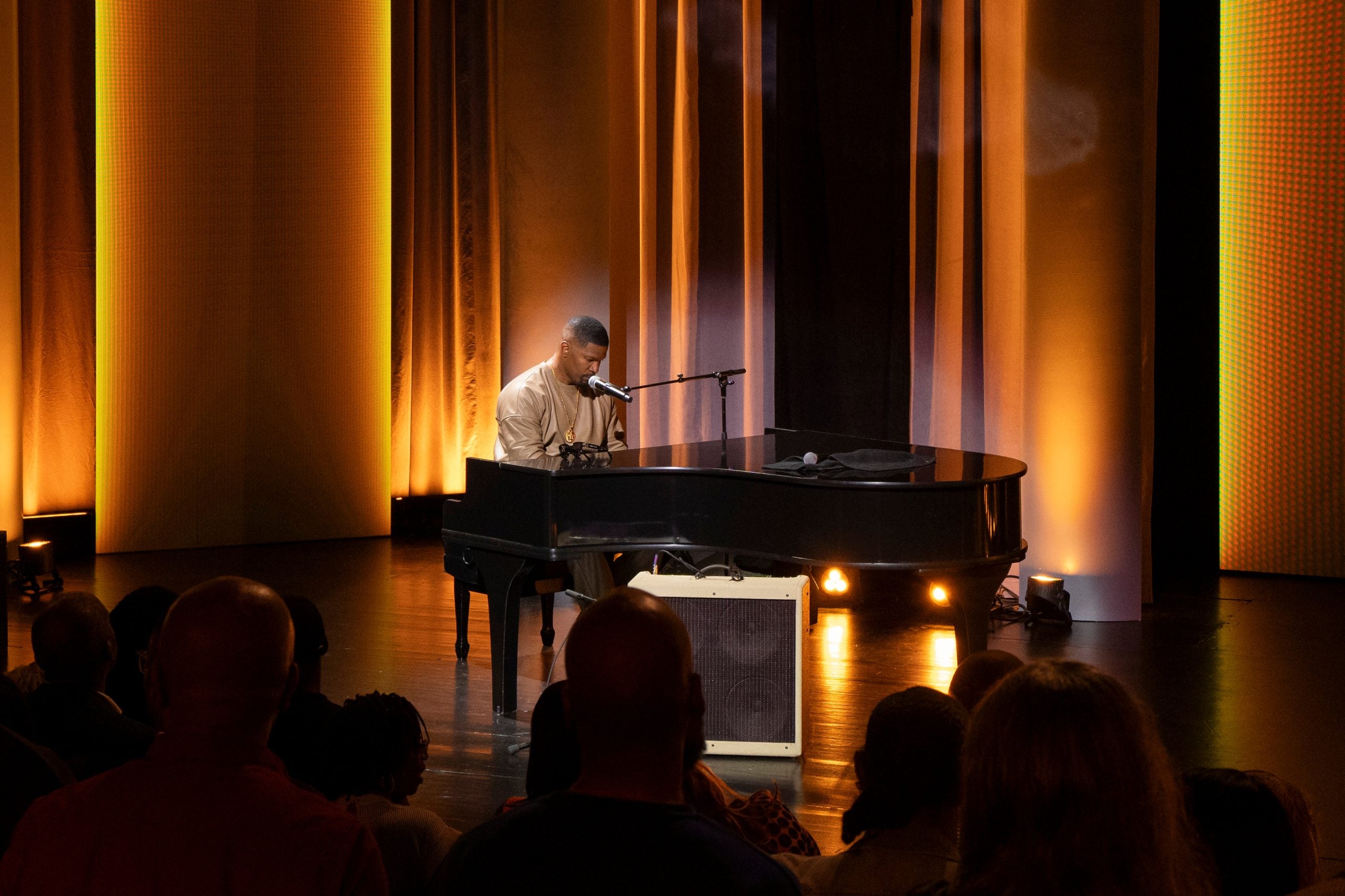
In a heartfelt return to the stage after more than 20 years, Jamie Foxx’s new Netflix comedy special, What Had Happened Was, offers viewers an intimate glimpse into the journey of the comedian, weaving together a compelling amalgamation of humor, storytelling, and personal reflection. The Terrell, Texas native, who rose to fame for his versatile talents—from his iconic portrayal of Ray Charles to Muhammad Ali’s assistant trainer in Ali—captivates audiences with a stand-up performance that dives deep into his recent health struggles while remaining infused with his signature comedic flair. This long-awaited special not only marks a significant comeback for Foxx but also demonstrates his remarkable ability to transform personal adversity into a celebration of life, laughter, and resilience.

Born Eric Marlon Bishop, Foxx rose to prominence as a comedian and actor in the 1990s. He first gained national attention on the sketch comedy show In Living Color, where he showcased his comedic range and impressive impressions. Foxx’s ability to inhabit various characters—from the flamboyant Wanda to the suave boxer Willie Beamen in Any Given Sunday—established him as a versatile entertainer capable of moving seamlessly between comedy and drama. In the late 90s, he was greenlit for his own namesake show, The Jamie Foxx show, which ran until 2001. His talent was further recognized with an Academy Award for Best Actor in 2004 for his portrayal of Ray Charles in the biopic Ray. Not to mention Foxx is a Grammy winner, having released several successful studio albums, with hits like “Unpredictable” and “Blame It.”
The special opens with an emotionally charged introduction from his daughter, Corinne Foxx, who lovingly sets the tone for what becomes a profound exploration of Foxx’s recovery journey. In 2023, the comedian faced a significant health crisis that shocked fans and friends alike: a brain bleed that led to a stroke. This sudden health scare led to an outpouring of concern from fans and the media, with many speculating about his condition. In this special, Foxx addresses these swirling rumors—wild speculations that he had been cloned or even died—with a candidness that feels both refreshing and necessary. Rather than shying away from this vulnerability, Foxx tearfully embraces it, transforming what could have been a somber story into a celebration of life, family, and the healing power of laughter.
Foxx’s ability to incorporate impressions—of celebrities like Mike Tyson, Jay Z, Katt Williams, Dave Chappelle, and even Donald Trump—into his storytelling showcased his comedic genius but also enriched the overall special. He maintains an animated rhythm throughout the special, weaving in between humor and heartfelt pauses where he’s visibility holding back tears. His anecdotes, filled with humorous tangents, reveal the depth of his character and the strength he draws from those around him. This brew of personal account and cultural commentary is a hallmark of Foxx’s style, allowing him to connect with audiences on multiple levels.
A particularly poignant segment pays tribute to the women in his life who steadfastly supported him during his recovery—his sister, daughter, and nurse, Holly. This acknowledgment of the vital roles they played underscores a universal truth: behind every strong man is an equally strong support system. Foxx’s storytelling shines here, illustrating the significance of their unwavering love and encouragement during his darkest days. He highlights how these women not only helped him physically but also provided emotional strength.
As he recounts these moments, Foxx employs his signature of humor and sincerity. He reflects on his relationship with God, and how for a time, he wasn’t as spiritually connected as he should’ve been—which ultimately led to his health scare. Foxx’s openness about his struggles is both brave and necessary, as he breaks down barriers and encourages others to speak about their own experiences.
The musical elements of the special reflect Foxx’s multifaceted artistry and serve as a powerful backdrop to the special as well. His Grammy-winning vocals add layers to the performance, transforming comedic bits into soulful reflections. The gospel undertones resonate deeply, echoing his upbringing in the church and highlighting the spiritual journey he shares with his audience. As he performs hits like “Slow Jamz” and “Gold Digger,” Foxx not only entertains but also connects us to the healing power of music—a sentiment that resonates strongly within the Black community, where music often serves as a source of strength and solace.

Foxx’s musical interludes also serve to bridge the gap between comedy and the cathartic power of song. His performances are infused with a sense of authenticity, as he invites the audience to share in his experiences and emotions. In one touching moment, he refers to his daughter Anelise’s guitar as his “spiritual defibrillator,” emphasizing the role of music in his recovery. When Anelise joins him on stage to perform, the bond between father and daughter is palpable, and it’s a rather emotional moment for both the viewers at home and those in the audience.
After enduring such a challenging period, it was the combined strength of God, and the women in his life that propelled Foxx forward. Throughout the special, he takes a moment of reflection, stating, “If I can stay funny, I can stay alive.” It encapsulates the essence of his entire performance: laughter is a vital part of resilience and recovery.







As the special nears its conclusion, Foxx’s performance transforms into a joyous celebration of life. He wraps up with an uplifting rendition of “God is Good,” showcasing not just his vocal ability but the sincerity in his message of thankfulness. In a clever twist, he revisits a former comedic bit, changing the lyrics from a humorous “F*** you” from his 2002 comedy special I Might Need Security, and changed the lyrics to a heartfelt “Thank you,” leaving the audience with an overwhelming sense of gratitude and inspiration.

What Had Happened Was goes beyond the confines of a standard comedy special—it feels more like a testimony embedded into a comedy show. By masterfully storytelling, Foxx crafts an experience that is both engaging and holds emotional depth. This special not only reinforces his status as a powerhouse in the entertainment industry but also sheds light on his remarkable journey, leaving audiences uplifted and reflective about the beauty of life. In an era rife with challenges, Foxx’s message of hope and appreciation strikes a chord, reminding us that laughter can be a potent remedy for both visible and hidden struggles.
His unique ability to transform personal pain into comedy and gratitude showcases his artistry and humanity, creating a lasting impact on all who tune in. In this performance, Foxx emerges as triumphant. His journey serves as a powerful reminder that even amid adversity, we can uncover joy and connection through shared experiences.








